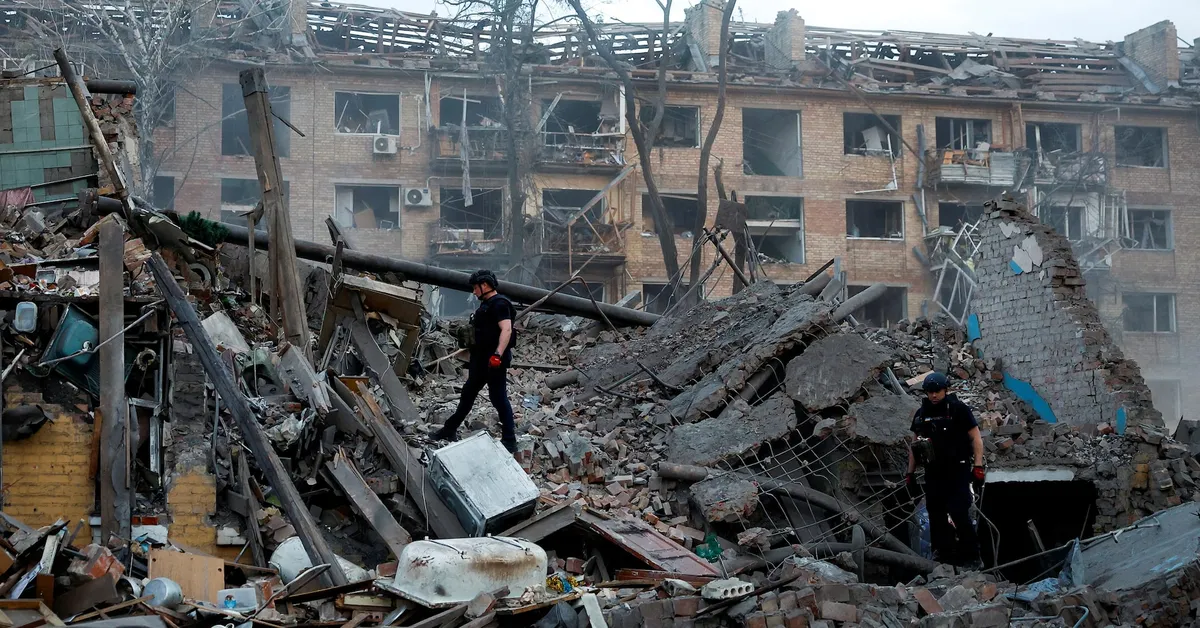
On April 28, Russian President Vladimir Putin announced a significant development in the ongoing conflict with Ukraine, declaring a three-day ceasefire in May. This temporary halt in hostilities is timed to coincide with the 80th anniversary of the victory of the Soviet Union and its allies in World War II.
The ceasefire will be effective from May 8 to May 10, with the peak of the celebrations occurring on May 9, a day when Putin is expected to host international leaders, including Chinese President Xi Jinping. The Kremlin emphasized that all military actions would be suspended during this period, urging Ukraine to reciprocate this gesture. In their statement, the Kremlin warned that any violations by the Ukrainian side would be met with a decisive response from Russia's armed forces.
The announcement has drawn skepticism from Ukrainian officials. Ukrainian Foreign Minister Andrii Sybiha criticized the timing of the ceasefire, questioning why Russia would wait until May 8 to pursue peace. He emphasized that a ceasefire should be genuine and not merely a ceremonial pause for a parade. Meanwhile, the White House echoed sentiments for a more permanent resolution, with National Security Council spokesman Brian Hughes stating that President Donald Trump is in favor of a lasting ceasefire and a peaceful end to the conflict.
Putin's ceasefire declaration comes at a time of increasing impatience from the U.S. regarding progress in peace negotiations. This marks the second unilateral truce announced by Putin in quick succession, following a brief 30-hour ceasefire during Easter, which both sides accused each other of violating. The backdrop to this announcement includes a recent deadly attack on Kyiv by Russian forces, which has drawn criticism from Trump, who expressed concern that Putin might be stalling for time.
Ukrainian President Volodymyr Zelenskiy has indicated that Kyiv is prepared to engage in talks with Moscow, provided that a ceasefire is established to halt the fighting. Ukrainian officials have been advocating for a ceasefire lasting at least 30 days, while Russia appears to be seeking a more comprehensive settlement rather than a mere pause in hostilities.
The Kremlin reiterated its willingness to engage in peace talks without preconditions, aiming to address the root causes of the conflict. Kremlin spokesman Dmitry Peskov stated that the initiative for direct negotiations should come from Ukraine, highlighting a legal ban on negotiations with Putin imposed by Zelenskiy in 2022 after Russia's illegal claims over four Ukrainian regions.
Ukraine has accused Russia of attempting to buy time to expand its territorial claims, while simultaneously calling for increased international pressure on Moscow to end the conflict. In a separate remark, Trump suggested that Zelenskiy might be open to discussions regarding Crimea, which has been under Russian control since 2014. However, Zelenskiy has firmly stated that any concession on Crimea would conflict with Ukraine's constitution, leaving the situation precarious.
As the world watches, the unfolding events surrounding the ceasefire and potential peace negotiations will be pivotal in determining the future of Ukraine and its ongoing struggle against Russian aggression.